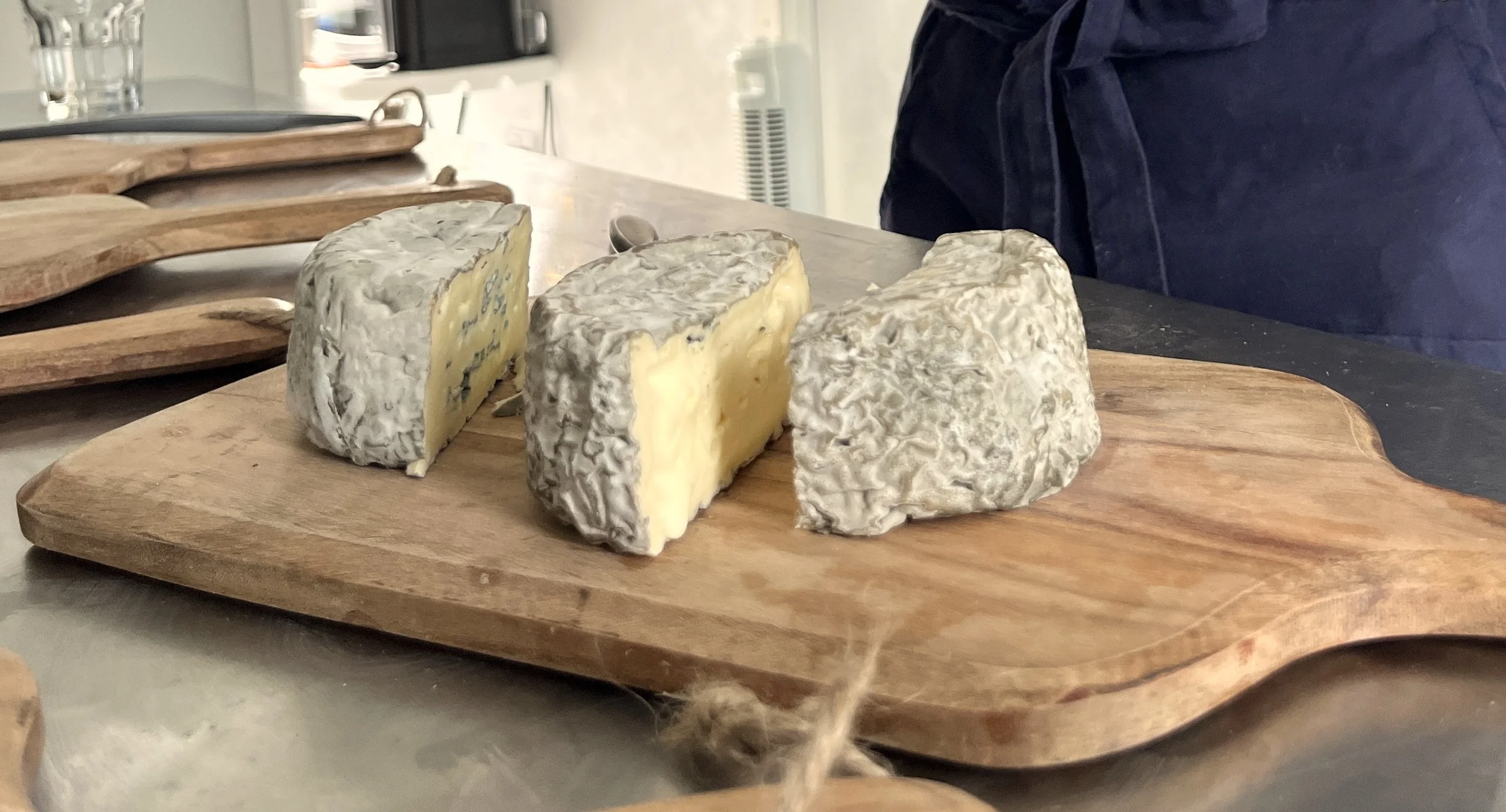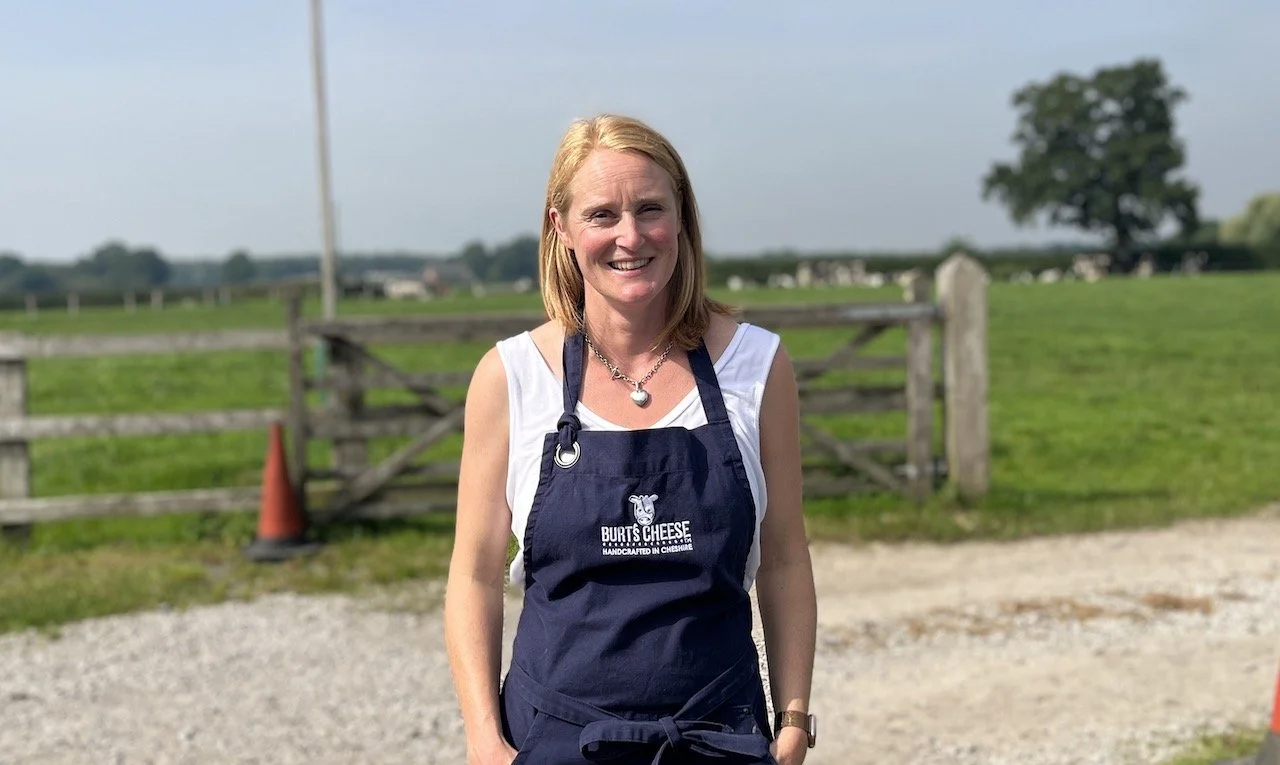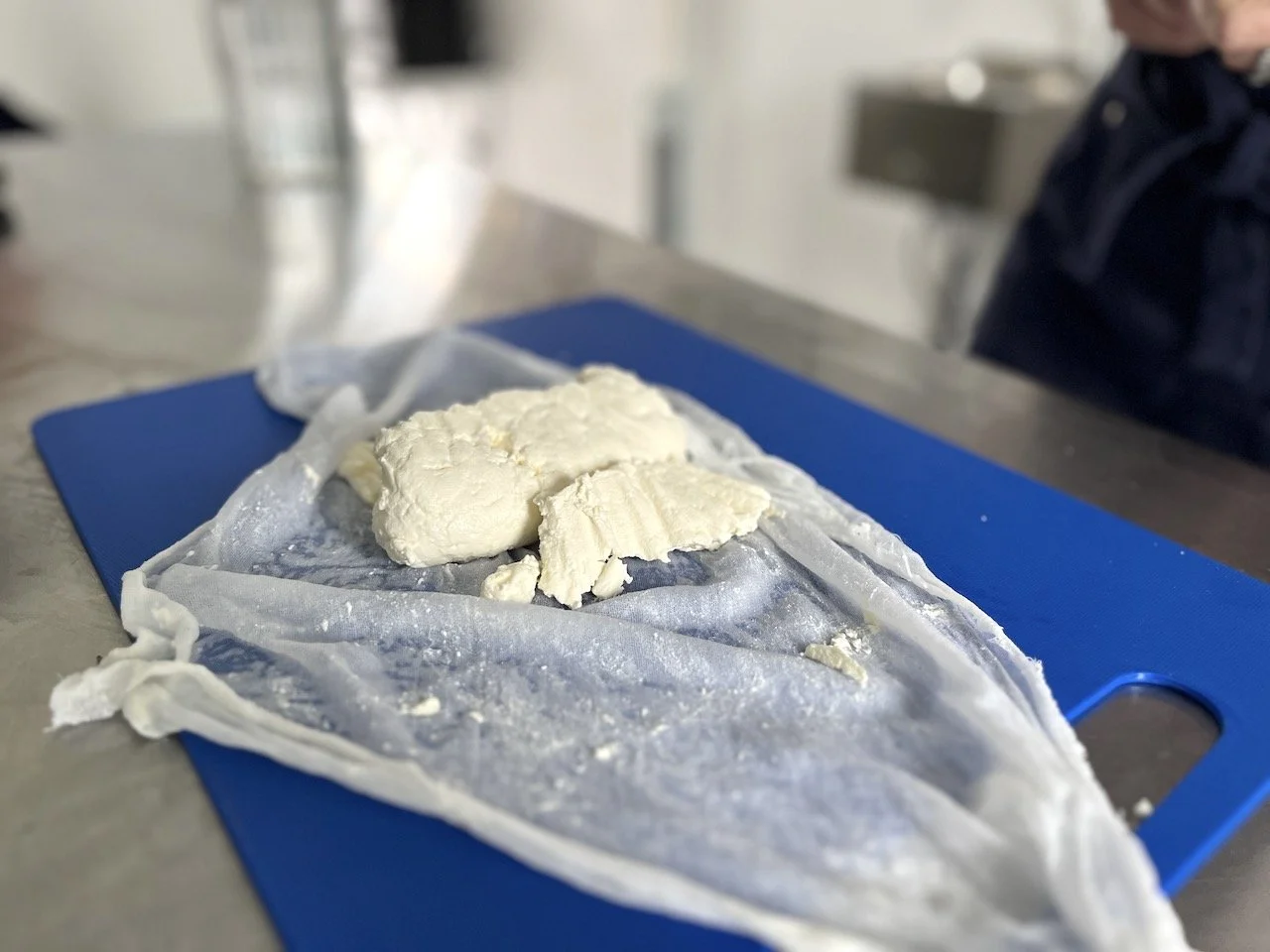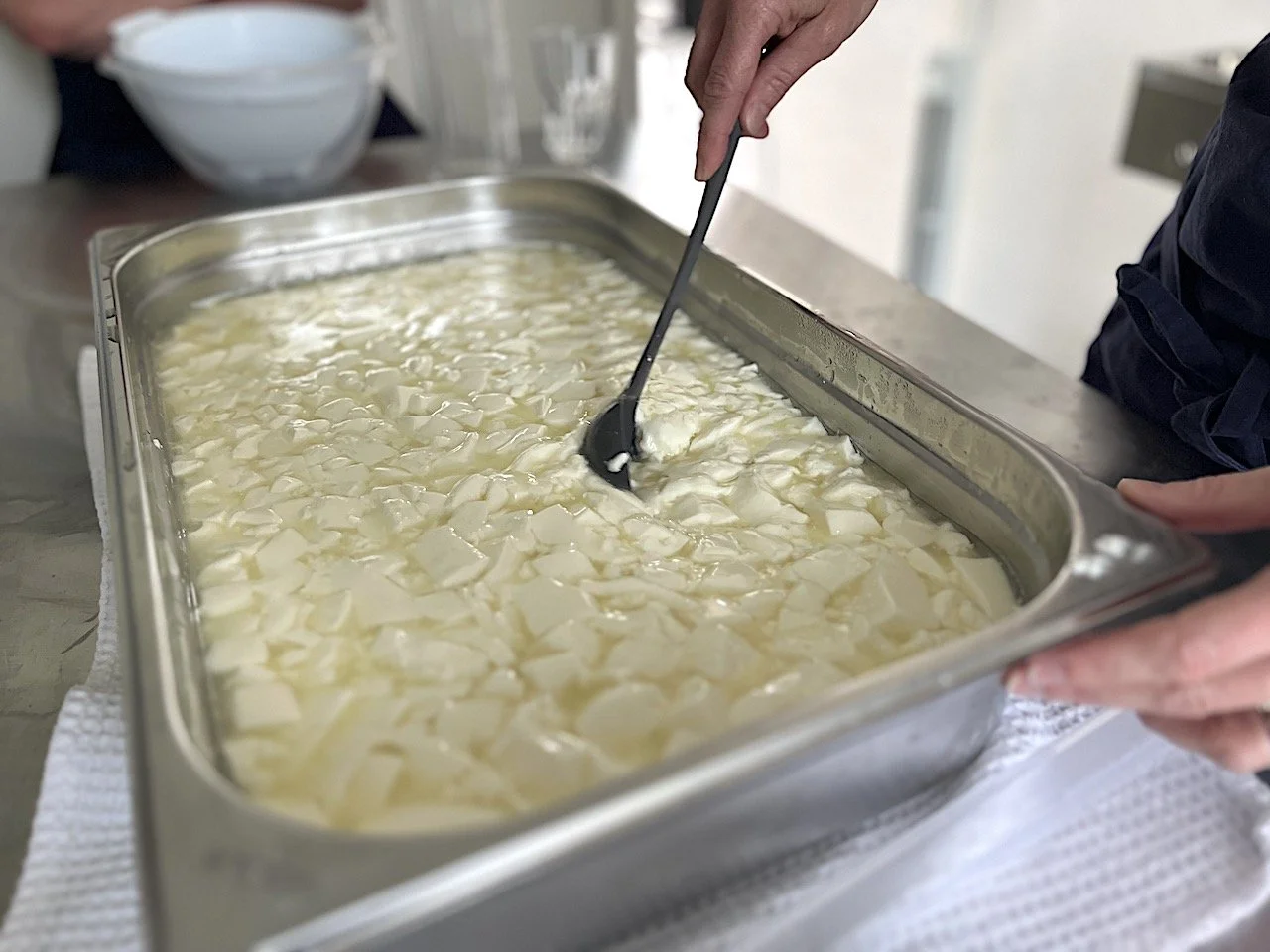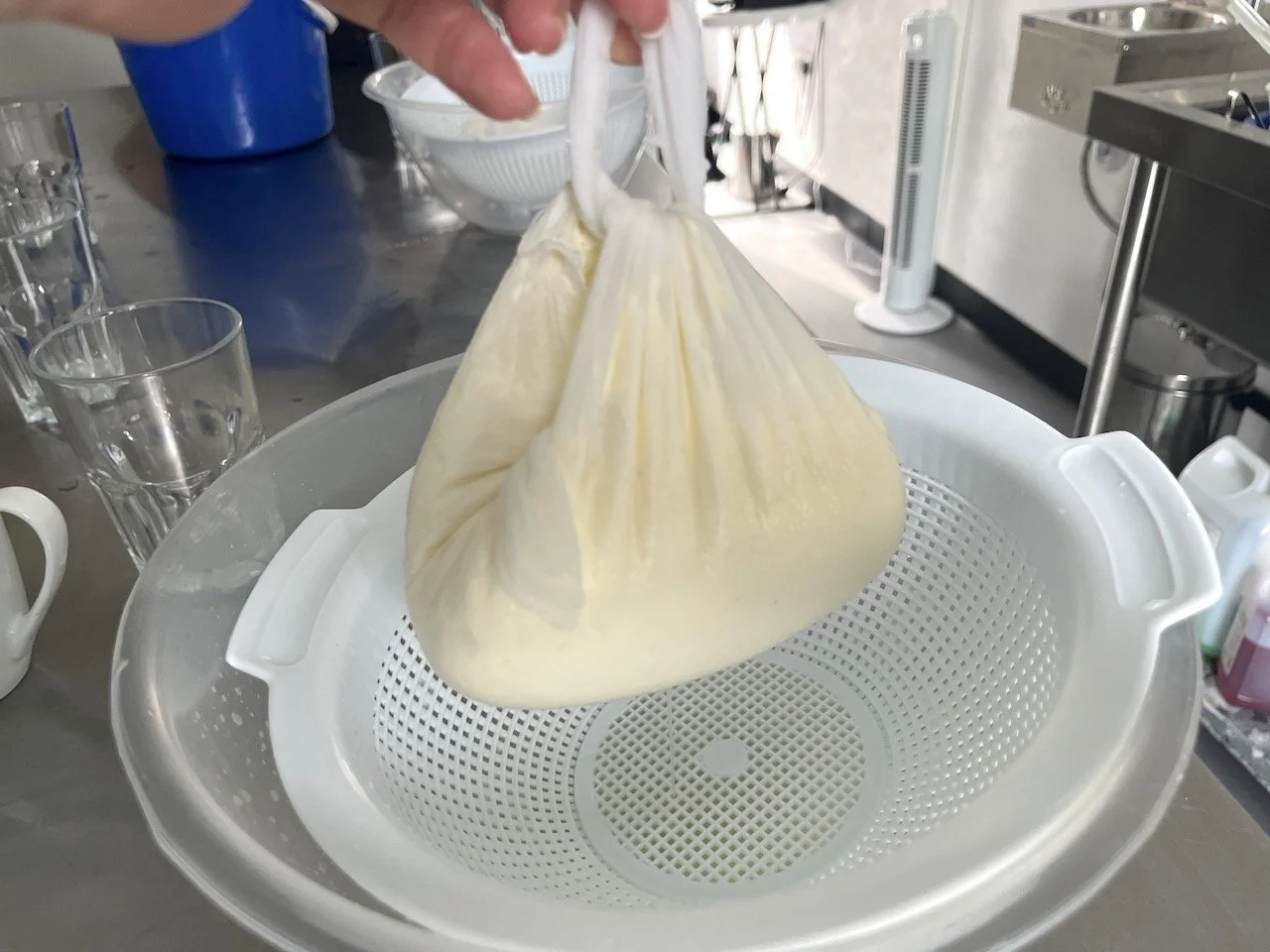Milky Magic – How easy is it to make your own cheese?
Claire Burt shows me how during a cheesemaking workshop at her Cheshire dairy
Burt’s Blue and Drunken Burt cheeses. Credit - Deanna Thomas
The commonly accepted notion of animal milk for human consumption has always seemed a bit iffy to me for many reasons, but this feature isn’t about that. It’s about turning milk into cheese. Now that makes perfect sense, and I won’t hear it any other way.
Signature cheeses have made the geographical areas after which they are named famous (you say Cheddar, I say cheese.) The variety is mind-blowing, from soft and oozy rind-washed French cheeses to hard, granular cheeses such as Parmesan. You can enjoy the stretched curds of warm Italian Mozzarella or Mexico’s Queso Oaxaca, a smothering swipe of melted Swiss Raclette, Feta’s cooling saltiness or the sweet toffee-like qualities of Norwegian Gjetost.
Cheese is not affected by class boundaries (apparently The Queen was partial to a well-made cauliflower cheese) and it can be found on menus from the greasiest spoon to the world’s top restaurants.
It’s also one of the few foods where mould isn’t treated with fear. In fact, it’s positively encouraged – albeit under strict food hygiene safety parameters. Which brings me neatly back to Cheshire, an English county with a long cheesemaking history which is home to the multi-award-winning Burt’s Blue Cheese.
Cheese-maker Claire Burt, owner of Burt’s Cheese. Credit - Deanna Thomas
Claire Burt started making her cheese in January 2009 as a hobby on her kitchen table. She had a career in the dairy industry but working with mass produced blocks of cheese wasn’t why she’d got into it in the first place. It was the smaller artisan cheeses that helped develop her passion for cheese-making and the opportunity to visit cheesemakers all over Europe.
She developed Burt’s Blue; a soft mould ripened blue cheese and entered it into the International Cheese Show in 2010. It won Gold. She decided to pursue the business full-time moving into the back room of a kitchen business and cookery school in Altrincham.
Over the years, more awards and accolades followed (including being named Best Producer by the Observer Food Monthly) and Claire developed more cheeses including, Drunken Burt, which starts out in the way same as Burt’s Blue but is ‘washed’ in Gwatkin’s Cider rather than being pierced during ripening.
Bidlea Dairy in Twemlow, Cheshire. Credit - Deanna Thomas
Burt’s Blue recently located to Bidlea Dairy, a farm with its own café and ice cream shop near Jodrell Bank and Holmes Chapel (which now enjoys notoriety for being Harry Styles’ hometown.)
Each cheese is still made by hand from start to finish by Claire or fellow cheesemaker Tom Partridge and now there’s a little more room, Claire has started to run cheese making classes every Friday morning.
Her cheesemaking workshops are designed for small groups of around 4-6 people. They’re hands on and everyone gets the opportunity to make their own fresh soft cheese to take away on the day.
At the cheese workshop, participants get to make their own soft cheese to take home. Credit - Deanna Thomas
Claire uses cow’s milk which is pasteurised but not homogenised (pasteurisation is where milk is heated to destroy potentially dangerous bacteria and increase its shelf life. Homogenisation is a mechanical treatment preventing the fat layer rising to the top and ensuring that milk has a smooth and even texture.) This is available from Duchy Organic at Waitrose or from Daylesford Organic via Ocado or Claire suggests you can use skimmed milk and reintroduce some double cream to raise the fat content to the required 4% (it would be proportions of 12 litres of skimmed to 1 litre of cream.)
“Culture are what holds the key to the types of cheese you’re going to make,” Claire explains. They’re the cheese’s personality, their very essence and they convert the milk sugar (lactose) into lactic acid. The other thing you need is rennet which Wikipedia defines as ‘a complex set of enzymes produced in the stomachs of ruminant mammals’ although Claire uses a natural vegetarian alternative and you can buy rennet on Amazon. Good cheese is also about regularly monitoring PH levels of acidy as well as keeping a constant temperature – it uses a significant amount of electricity.
Stirring curds and whey at a cheesemaking workshop at Burt’s Cheese. Credit - Deanna Thomas
Once the culture and rennet are added to the milk (which needs to be heated to around 30 degrees), the magic happens overnight (or call it science if you’re going to get all serious about it.) Now it’s at the ‘clean cut stage’ where the solids have separated from the liquid whey. Later on in the workshop, Claire reheated the whey to show us how to skim off the ricotta that rises to the top, but it can also be used for baking (or feeding pigs if you happen to have any.)
The milk solids are then cut by gently dragging curd cutting tool to form curds in uniform sizes which are then stirred and lifted out into cheese moulds and left overnight to drain further. By then the compacted curds have reduced significantly in size and that’s when they are salted (salt is never added to the milk itself.) During the ripening process each cheese is pierced by hand to encourage the growth of mild blue veins throughout which give Burt’s cheese its character, flavour and name.
Draining the cheese curds. Credit - Deanna Thomas
The workshop gives us a practical introduction into the basics of cheesemaking and is an opportunity to ask Claire all the questions you’ve ever wanted to ask about how cheese is made (I had a lot of questions.) As well as creating your own tub of fresh soft cheese, attendees are invited to return to the dairy a couple of weeks later to pick up one of the moulded cheeses made on the day. If you’d like to have a go at making cheese yourself at home, Claire also sells cheese making kits for £30 complete with everything you’ll need.
You can pick up a cheese making kit for £30 to try and have a go in your own home. Credit - Deanna Thomas
Of course, there is an opportunity to taste some cheese during the workshop. Claire cut up some Burt’s Blue, Drunken Burt and Little Burtles for us to try and showed us what a difference adding things like salt, garlic granules and even flower petals can make to the soft cheese we made in class.
Tasting Burt’s Blue cheese during the cheese making workshop. Credit - Deanna Thomas
Claire is an easy-going and knowledgeable teacher and her workshops are a relaxed informal opportunity to watch the fascinating cheesemaking process up close and they’ll give even the most inexperienced novice the confidence to have a go at doing it at home.
Burt’s Cheese cheesemaking workshops are held every Friday morning from 10.30-around 1.30pm. They cost £75 per person and can be booked HERE. For more information or to ask about private group bookings at other times, contact Claire on 0770 9394292 or email claire@burtscheese.com
Burt’s Cheese, Bidlea Dairy, The Orchards Farm, Twemlow Lane, Holmes Chapel CW4 8DS

